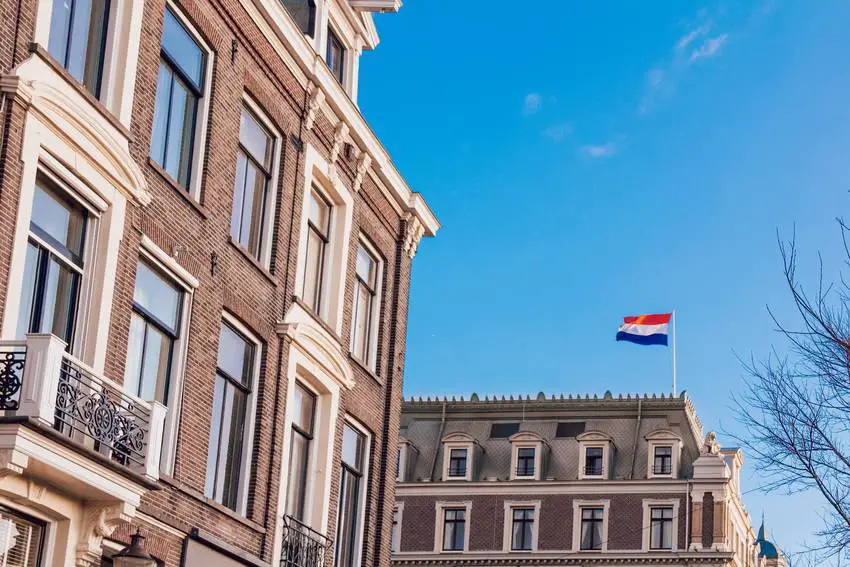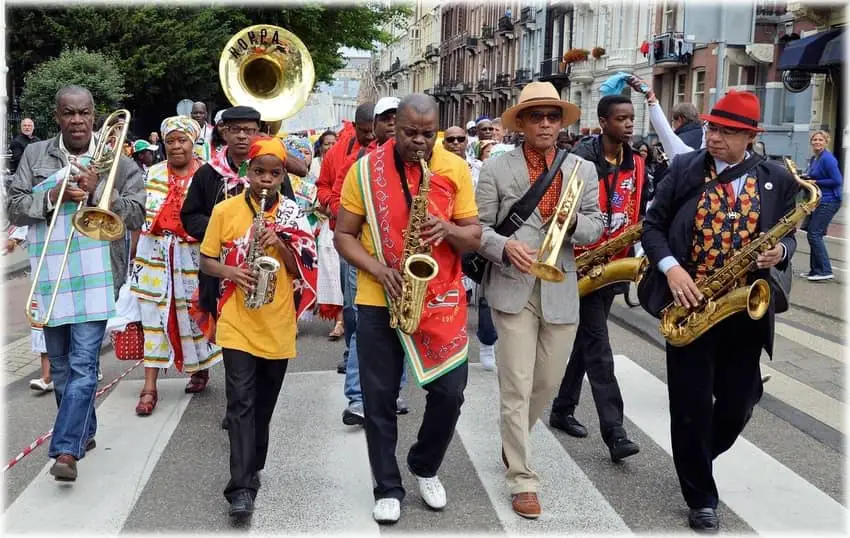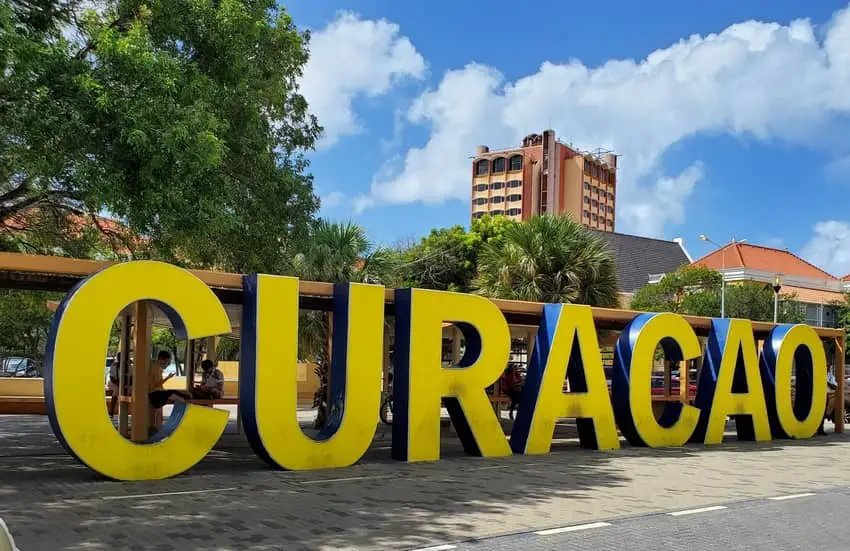Dutch is the National Language of the Netherlands, a language that belongs to the Germanic family, closely related to English and German, among other languages. Besides other languages spoken in the Dutch territory, there are other countries that because of historic reasons either speak Dutch or have developed different languages after being in contact with Dutch.
- Netherlands: the official language
- Belgium: one of its official languages (called Flemish)
- Aruba
- Curacao
- Sint Maarten
- Suriname
- Caribean Netherlands

Dutch is not one of the most spoken languages in the world but has over 20 million native speakers all over the world. Moreover, like most languages, in each region of the Netherlands and in each country where it is spoken there are many differences in a dialectal level. So, are you wondering why places so far away from the Netherlands also speak Dutch? What other languages have been influenced by it? Keep reading to find out more!
Dutch: Official Language
Nowadays there are over 20 million Dutch native speakers and even though there are more non-native speakers who are learning it, mostly in the Netherlands, it is not one of the most widely spoken languages in the world.
Dutch comes from the family of the Indo-European language, more concretely it is a Germanic language, sister of English and German. Dutch has developed in its own way and has been brought all around the globe during the period of colonisation in the 19th century. Because of this, the following territories speak Dutch as mother tongue up to today:
- Netherlands 17 million speakers
- Suriname 400,000 speakers
- Curacao 13,000 speakers
- Aruba 6000 speakers
- Dutch Caribbean 3000 speakers
- Sint Maarten 1500 speakers

However, it is important to know that Dutch is not the only official language in most of these territories, sharing it with others like Spanish, Portuguese, French or English. In the Netherlands, Frisian is another of the constitutional languages and people have the right to study in and use it for any bureaucratic activity people from Friesland may have to do.
Moreover, in the Netherlands and mostly in bigger populated cities, you can hear different languages and English is widely spoken by 90% of the population and used frequently for any activity you may want to develop in the Netherlands.
Dutch Colonialism: Imperialism
Between the 16th and the 19th Century, the Dutch were one of the leading countries to trade and create a network of ships and companies all around the globe.
Due to this incredible connection with territories in the Americas, Africa and Asia, Dutch tradesmen started not only doing economic exchanges with these areas but absorbing parts of their cultures and imposing some of their own.

In the relationship between colonies and the mainland, the colonies are always the ones that adapt to the newcomer, illogically enough, and it is because of the many centuries of the Netherlands having power over these newly conquered territories that one of the main features of the motherland was established also in the colonies: the language.
This has happened with all the colonies all around the world, French-speaking countries in Africa, English-Speaking North-American countries and Spanish-speaking Latin American countries.
These were the Dutch colonies and these are the ones that still speak Dutch four centuries later:
- Suriname: where nowadays Dutch is the official spoken language.
- Aruba, Curacao and Bonaire as well as the Dutch Caribbean: it is were Dutch has been also chosen as an official language yet only a really small percentage of the population that doesn’t even reach the 10% of them, speaks it on a daily basis or at home. This is one of the cases of Papiamento, a mix of local languages with the language of the empire.
- Indonesia: where there is no real case of Dutch speakers but whose language is considered to be at least 20% Dutch.
- Ceylon: India, where no trace of Dutch was left after over 100 years of colonialism.
- United States: where obviously Dutch hasn’t been the chosen language.
- Sint Maarten: where English is as important as Dutch.
- South Africa: here there is another case of Papiamento, the creation of a language spoken only in that territory that represents a mix of the new language with the many existing languages there were in this territory before the arrival of the Dutch. It is called Afrikaans.
- Canada: is technically not a Dutch colony but due to the high amount of Dutch immigrants there, even nowadays there are mother tongue Dutch speakers.

It is important to notice the two-sides exchange the Netherlands has had with the colonies. The Netherlands has won a lot of culture, words and mostly has created an amazing cuisine thanks to the rich cultures that are now part of the Netherlands.
Legally, people from the Netherlands, as well as Aruba, Curacao and Sint Maarten, have the right to be Dutch citizens, study in the Netherlands and have the same rights as citizens from the old continent.
Flemish: Belgian Case
For those of you wondering it is worth mentioning that the Netherlands was one with Flanders, the northern provinces of Belgium, right before the Eighty Years War during the Middle Ages. It was since then that both languages have been developing parallelly but like it is the case of Spanish, after all, it is one language with different varieties of approaches.
If you want to read more about the Eighty Years War and Flemish, be my guest: article.
Netherlands as a Second Language
We have been talking about Dutch being spoken in certain places considering Dutch as a first language and not as a second language. If there are over 23 million people all over the world who speak Dutch as an L1 (first language), there over 4 million who speak it as L2 (second language or acquired later on in life).
As a linguist I find both cases to be very interesting each in its own way. If you have lived in the Netherlands, you will agree that the idea of Dutch as a second language can only be conceived when in need of learning it because of an external reason and not because you cannot communicate with people.
The Netherlands is one, if not THE country in the world where you can speak English everywhere and forever without having the need to speak Dutch. There are, however, many people who are doing it, why is that?
I am one of the very few people I know who has been studying Dutch for pleasure and just because of it (overly justified because I am a linguist and translator) but most people do it because they need to.
NT2: Dutch as Second Language
If you are a foreigner who for political or ideological reasons need to remain in the Netherlands and you are aiming for a permanent residence permit, you are obligated to pass the national exam for second-language learners. These are called NT2, you have two of them:
- NT2I: the exam made for those who are seeking a residence permit and are willing to take a job that doesn’t require a university degree. The level of Dutch is a B1 according to the CEFR. the State exam is the regulator for language levels and for those who are entitled to the Dutch permanent residence permit. There are two different levels, the NT2I is the basic one for those who do a job that doesn’t require a university degree. It gives you enough knowledge for a daily life basis.
- NT2II: the second type of exam is for those citizens who want to attend university or work on a job that requires a university degree or higher education diploma. It reaches a level B2 (of the CEFR) and it has a much higher knowledge and study of the language, grammar, vocabulary…
In both cases, the person has 3,5 years to pass the exam in order to obtain with it the Dutch residence permit. It also includes a cultural test with history and basic knowledge of the Netherlands. This exam can be taken by any person who wants to learn Dutch as a language certificate too.
If you are interested in taking these exams, here you have a link to read more about free Dutch courses and about learning Dutch.
In conclusion, I would like to say that most Dutch second-language speakers fall into this group of citizens of the Netherlands who want to apply for the permanent residence permit. More about this here.
Why learning Dutch:
If you are considering learning Dutch and you don’t fall into this category above, here are some of the reasons I would consider:
- Integration: It is undeniable that you get to belong to a society and understand it well when you can speak and understand the language. Language is also a reflection of the culture and character of the country, as we can see in the ex-colonies example.
- Work: if you want to work on certain specific fields in the Netherlands you have to have a sometimes passive and sometimes active knowledge of Dutch. If you want to work on what you have study, like me, translator and interpreter, you HAVE to know Dutch.